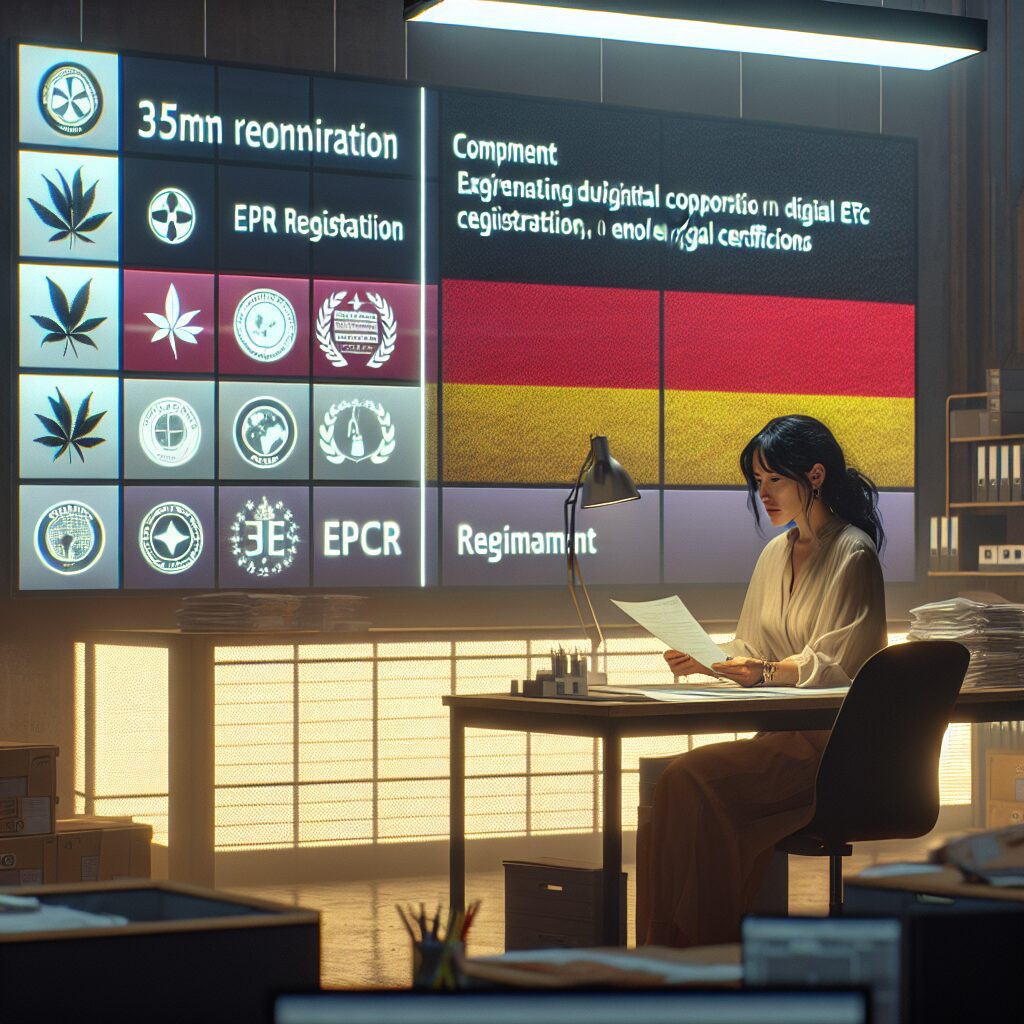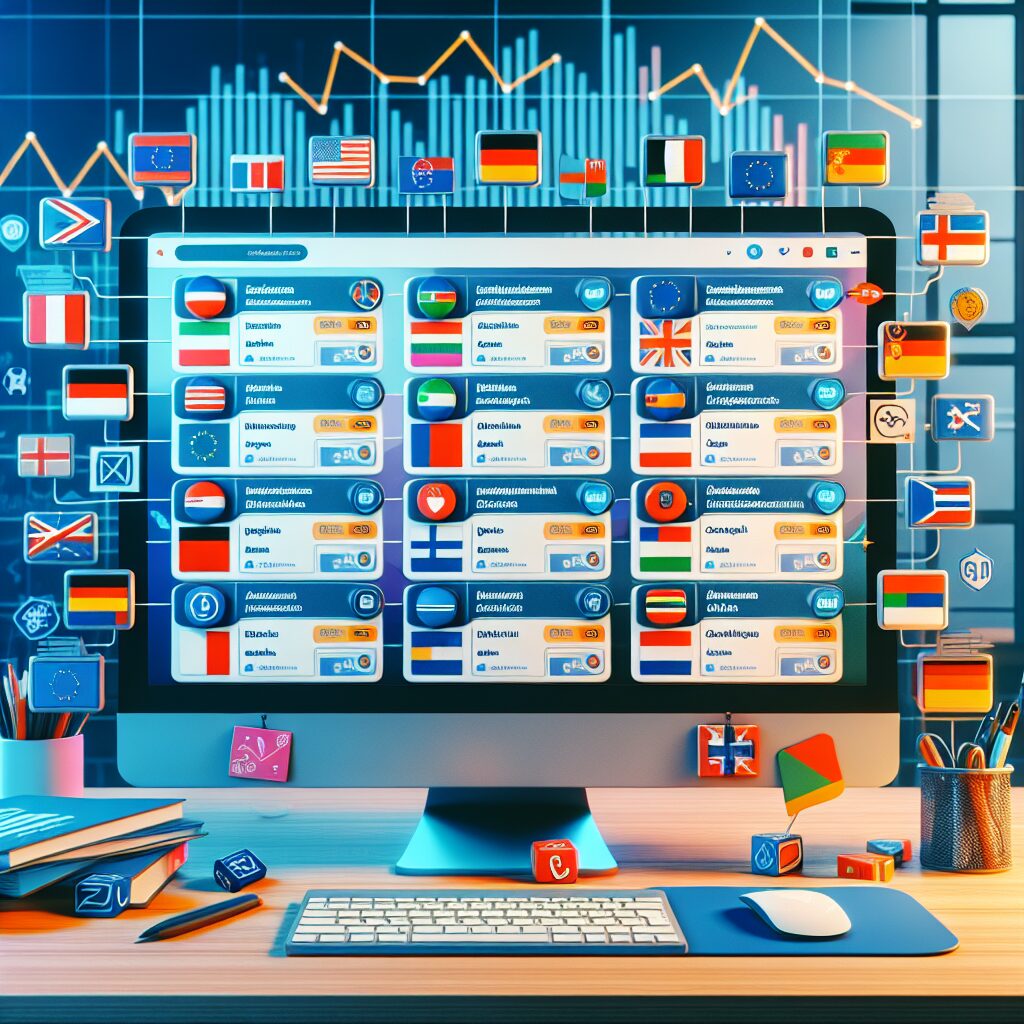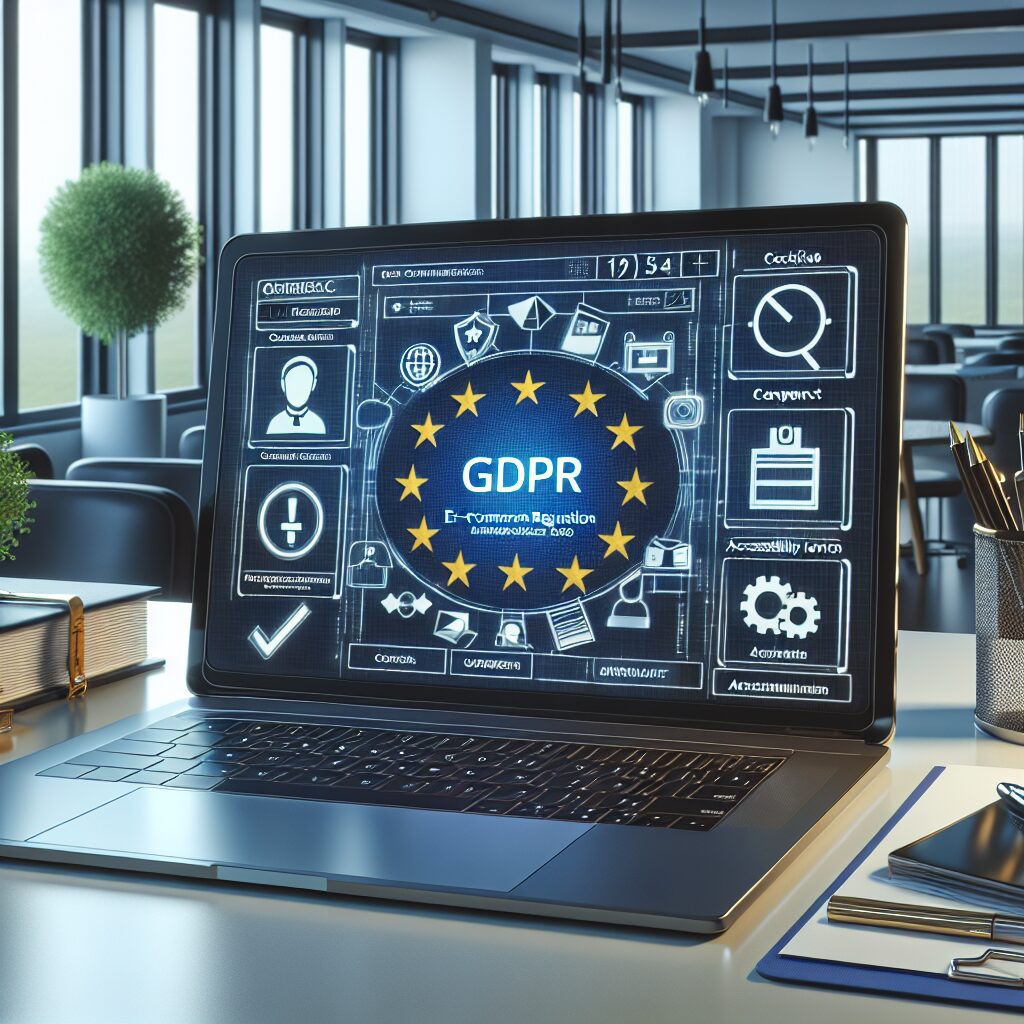About eldris
At Eldris, we automate SEO, multilingual site expansion, and EU compliance for brands scaling across Europe. Our AI-powered platform handles everything from content publishing to regulatory docs—so you don’t have to.
In This Article
- Germany’s VerpackG law mandates EPR compliance for all producers that introduce packaging to the German market.
- Registration with the LUCID Packaging Register is mandatory and publicly visible.
- Accurate reporting of packaging volumes is required annually, and dual system participation is legally enforceable.
- Failure to comply can lead to financial penalties and marketplace delistings.
- Amazon and other platforms strictly enforce compliance, requiring valid registration documents.
- Ongoing obligations include regular reporting and data updates based on actual packaging use.
- Automation tools like Eldris simplify the entire EPR compliance process for DTC brands.
Why German EPR Compliance Matters for DTC Brands
Understanding the VerpackG and Regulatory Incentives
EPR compliance Germany is a critical topic for any direct-to-consumer (DTC) brand seeking to sell products in the German market. The country operates under one of the strictest Extended Producer Responsibility (EPR) frameworks in the European Union, compelling brands that export packaged goods into Germany to adhere to a defined set of environmental obligations. Spearheaded by the Verpackungsgesetz, commonly known as the VerpackG or Packaging Act, this regulatory framework places environmental responsibility squarely on the producer’s shoulders.
With rising consumer awareness and regulatory scrutiny, Germany incentivises eco-conscious behaviour by assigning clear legal duties to producers concerning their packaging waste. By ensuring that all packaging placed on the German market is declared, licenced, and recycled in accordance with federal mandates, the system ensures a circular economy ethos is maintained. Ignoring these regulations not only diminishes a brand’s trustworthiness but also exposes it to hefty fines and potential bans from marketplaces like Amazon Germany. Learn more about EU Compliance for E-Commerce Brands

Which Brands Need to Comply with German EPR
Who Qualifies as a ‘Producer’ Under German Law
Under the VerpackG, the term “producer” has a very specific and far-reaching definition. Any company – regardless of location – that first places packaging on the German market is considered a producer. This includes foreign DTC brands shipping directly to German consumers, marketplaces acting on behalf of other sellers, and even fulfilment centres facilitating EU-based deliveries.
To put it simply, if your brand sells products that arrive in Germany in any type of packaging, whether primary (product packaging), secondary (group packaging), or tertiary (shipping materials), then you fall squarely within the legal definition and must observe EPR compliance Germany regulations. Even brands fulfilling orders through third-party platforms like Amazon or Shopify must meet the compliance criteria themselves or through the platform’s registered entities. German EPR regulations explained for businesses
“Compliance gaps aren’t just regulatory hazards—they’re brand reputation risks in a heavily regulated European economy.”
The LUCID System: Germany’s Central EPR Registry
One pillar of EPR compliance Germany is the LUCID Packaging Register, operated by the Central Agency Packaging Register (Zentrale Stelle Verpackungsregister—ZSVR). Every producer must register in the LUCID database before initiating any commercial activity. Without a valid LUCID registration number, products cannot be sold legally within Germany.
This registry ensures traceability and transparency by allowing authorities and consumers to verify a brand’s compliance status. LUCID openly lists all registered producers, enabling fair enforcement and increasing market trust. Registration is free of charge, but failing to do so or providing inaccurate data can result in fines of up to €200,000 and enforced sales bans.
Step-by-Step Guide to German EPR Registration
Registering for EPR compliance Germany through the LUCID system involves several sequential yet essential steps:
- Create a LUCID Account: Visit the official LUCID website to register your business and generate login credentials.
- Verify Legal Status: Declare your company as a “producer” and provide all relevant business identifiers such as VAT IDs and commercial registry numbers.
- Select a System Partner: Choose a dual system (e.g., Interseroh+, Der Grüne Punkt) that will manage your recycling responsibilities.
- Report Initial Packaging Volumes: Provide packaging volume estimates to your system partner and LUCID.
- Receive EPR Number: Once completed, your LUCID ID confirms that you are authorised to sell in Germany under current compliance rules.
These steps must be completed before your products reach the German market. Attempting to register after launch can attract immediate regulatory penalties.
How to Handle Packaging Volume Reporting
Packaging volume reporting is a cornerstone of Germany’s EPR structure. Brands must accurately estimate and declare the quantity and type of packaging materials they place on the market each calendar year. This includes cardboard boxes, glass bottles, plastic wrappers, and even filler materials like foam and paper.
Volume declarations must be made both at the beginning of the year (forecast-based) and as part of an annual retrospective report (“Mengenmeldung”) submitted to the LUCID database. Depending on the weight and type of packaging, recycling obligations will vary and system partners will charge corresponding fees for material disposal.
Transparency and recordkeeping are key. Retain invoices, shipping manifests, and system partner contracts for auditors or in the event of an inspection.
Common Pitfalls for DTC Brands (and How to Avoid Them)
Many DTC startups and scale-ups fall into several common traps when navigating German EPR laws. One frequent error is assuming that third-party logistics or marketplaces automatically handle compliance. While companies like Amazon may enforce EPR obligations, legal responsibility still resides with the brand unless formally transferred.
Another mistake is underreporting packaging volumes to reduce fee obligations. The ZSVR conducts random audits and inconsistencies can not only lead to fines but suspension of trading rights. Timeliness is equally crucial; your annual reports and volume declarations must be submitted punctually to stay compliant.
Failure to monitor dual system deadlines, misunderstandings around what constitutes “packaging,” or incorrectly classifying packaging types are all preventable with proper foresight. Partnering with an EPR-focused specialist like Eldris can substantially reduce risk. Read a related article
Amazon Germany and Marketplace Platform Requirements
Amazon and other major e-commerce marketplaces have started enforcing EPR requirements by mandating proof of compliance from sellers. As of July 2022, Amazon Germany requires all sellers to upload their valid LUCID registration numbers and document their participation in a dual system. Non-compliant listings are subject to immediate removal.
This has been a game changer for small brands and DTC sellers that previously flew under the radar. Even if your product is sold in limited quantities, the new enforcement measures make basic compliance mandatory to retain access to these critical sales channels.
Moreover, sellers must remain aware that listing compliance alone does not guarantee immunity from audits. You’re still responsible for accurate, honest data reporting and ongoing adherence to obligations. Automated EU Responsible Person service
Consequences of Non-Compliance Under EPR
The regulatory consequences for not adhering to EPR compliance Germany are both financial and operational. Penalties can range from hefty fines—up to €200,000 per violation—to complete bans on selling in the German market. Regulatory breaches can also tarnish your credibility with consumers who increasingly favour environmentally responsible brands.
The ZSVR publishes a public list of non-compliant entities, exposing your brand to reputational harm. Platforms like Amazon use this data to enforce exclusion from their marketplaces. Public enforcement mechanisms mean that even competitors may report non-compliant sellers to gain a commercial advantage.
Repeated failure to comply may even invite scrutiny from EU regulatory bodies, risking issues beyond Germany’s borders.
Ongoing Obligations After Registration
Registration is only the beginning of EPR compliance Germany. Brands must engage in continuous activities to retain their compliant status. These include monthly or quarterly packaging reporting, annual quantity declarations to LUCID, and payment of system partner invoices that fund recycling infrastructure.
Records and invoices must be maintained for at least three years. Changes in product lines or packaging configurations require immediate updates to your reporting data. Additionally, any change to system partners must be communicated in advance to prevent registration gaps.
All communication with German authorities and system partners should be conducted in an organised, traceable format. Failure to keep up with administrative requirements is among the top reasons for penalties during random compliance checks.
Automating Your EPR Compliance with Eldris
Automation can transform a previously manual and error-prone process into a highly accurate system. Eldris offers tailored EPR integration specifically for DTC brands expanding into Germany. Our compliance software handles everything from LUCID registration to volume reporting and dual system coordination—all in one dashboard.
By integrating your sales channels and inventory management tools with Eldris, your packaging calculations and regulatory submissions are streamlined. Our machine-learning model predicts when updates are required and alerts your team proactively, ensuring zero missed deadlines.
Brands leveraging Eldris reduce administrative loads by up to 70% and enjoy peace of mind knowing they are consistently audit-ready. Whether you’re entering Germany for the first time or scaling across Europe, Eldris safeguards your brand’s environmental compliance posture.
Conclusion: Stay Ahead of German and EU Regulations
[CONCLUSION_CONTENT]
Great guide on germany-epr-compliance-actions-dtc-brands – Community Feedback
Is EPR compliance required for all DTC brands in Germany?
Yes, EPR compliance is mandatory for any direct-to-consumer brand placing packaging, electrical, or battery products on the German market.
How can DTC brands register for EPR in Germany?
Brands must register with the relevant German authorities (e.g., LUCID), submit product data, and obtain an EPR registration number as proof before selling.
What are the penalties for non-compliance with German EPR?
Non-compliance can result in fines up to €200,000, sales bans, and delisting from platforms like Amazon Germany.








